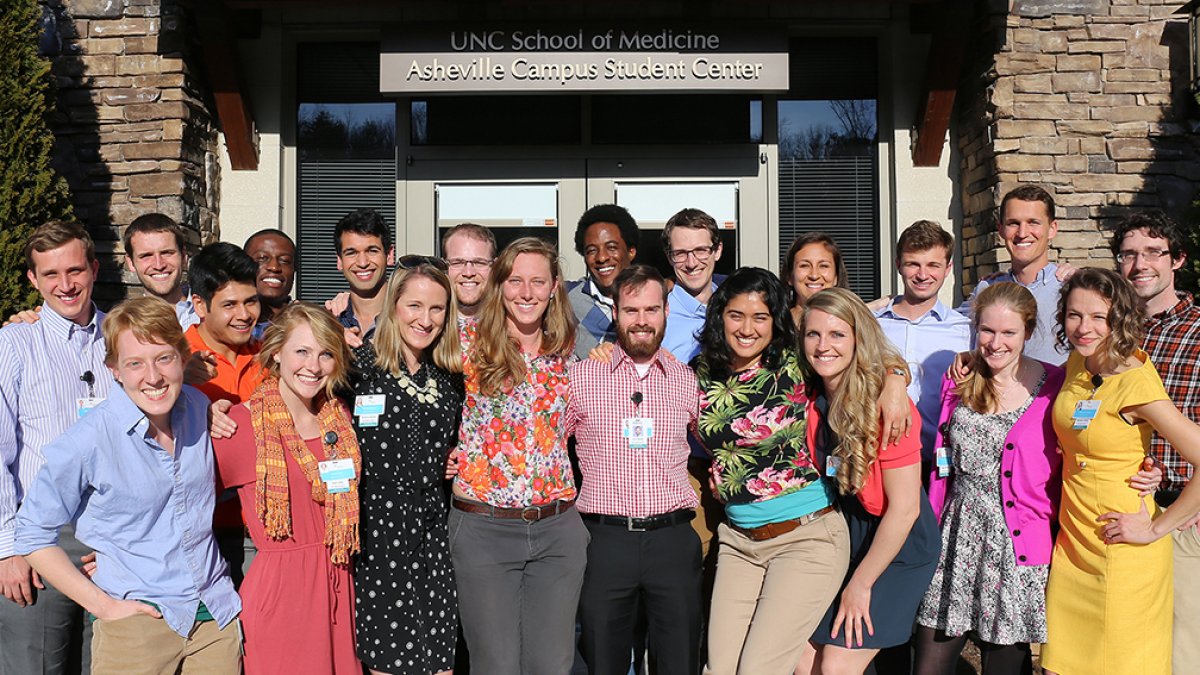Serving North Carolina’s rural areas
The UNC School of Medicine in Chapel Hill and Asheville and the Brody School of Medicine at East Carolina University are among the medical training programs in the state encouraging graduates – through special training, scholarships, and fellowships – to practice medicine in rural areas.

Imagine driving nearly an hour or 60 to 70 miles along backroads just for a simple checkup at the doctor. For many North Carolinians, basic healthcare is a major issue – and even more dire in an emergency situation.
State lawmakers and healthcare officials face significant challenges in providing healthcare to residents of underserved and rural areas. With new initiatives from medical programs in the University of North Carolina system, relief might be on the way.
The UNC School of Medicine in Chapel Hill and Asheville and the Brody School of Medicine at East Carolina University are among the medical training programs in the state encouraging graduates – through special training, scholarships, and fellowships – to practice medicine in rural areas.
Maggie Sauer, director of the Office of North Carolina Rural Health for the state Department of Health and Human Services, said between 70 and 80 of the 100 counties in the state are rated Tier 1 or Tier 2 and are considered to be underserved. She noted the Centers for Disease Control recently issued a report that people in rural areas have greater health risks because of a lack of preventative care.
In the 1970s as national concerns about rural healthcare came to the forefront, the state, in partnership with UNC School of Medicine, established Area Health Education Centers, or AHECs, in different regions to try to meet the needs of the rural population. At the same time, the state also created Brody to serve the eastern half of the state, particularly regions that were medically understaffed.
Now, the partnership is moving to the next level with programs designed to train medical students to work permanently in rural areas.
UNC School of Medicine
Dr. Robert Bashford jokingly said his favorite new word is “synergy.”
As associate dean of the UNC School of Medicine and director of the Office of Rural Initiatives, Bashford is helping to spearhead several initiatives promoting careers in rural healthcare. Bashford wants to coordinate his efforts with other medical school programs and state and county health services. Hence, the need for synergy.
“There are a lot of players, and I’m trying to get my arms around it to attain synergy,” he said. “It’s become an important word. The North Carolina Medical Society, the Office of Rural Health, and the Legislature – there are so many important players.”
Complementing the Brody School of Medicine’s efforts is an important part of Bashford’s goals.
“East Carolina has done what they said they were going to do better than anybody, which is training doctors for the eastern part of this state. So, they are integral to what we do,” he said.
The UNC School of Medicine rural medicine initiatives include:
- Kenan Primary Care Scholars: Funded by the Kenan Charitable Trust, the program was launched in 2013. Kenan scholarships support the second, third and fourth years of medical school and reduce student debt by a total of $30,000 per student. Students spend their third year working at the UNC School of Medicine’s Asheville campus working in clinics in the western part of the state. Scholars also take part in a six-week summer program which includes housing and a stipend. The scholarship also has recently expanded into underserved urban communities, with some students working in Charlotte, and the program will soon expand to a Wilmington campus.
- Kenan Scholars Fellowship: This new program is a one-year fellowship following medical school but before residency. Students are supported with housing and a stipend to work in a rural area to become engrained in a community. Bashford hopes many of the students will eventually want to serve in local government and contribute to the community beyond healthcare.
- Fully Integrated Readiness for Service Training (FIRST): This is a fast-track program that allows students to complete their medical degree in three years and guarantees them admission into the UNC Family Medicine Residency Program, currently ranked No. 2 in the nation by US News & World Report. After the residency, FIRST scholars commit to three years serving in a rural or underserved part of the state.
- North Carolina Rural Health Scholars: Launched last year, this state-funded program is a $40,000 scholarship paid upon medical school graduation. Scholars commit to serving in one of the state’s 80 rural counties after residency.
- Primary Care and Population Health Scholars: A voluntary program for elective credit, it serves medical students who are interested in practicing cost-effective, high-quality primary care with the larger vision of improving the health of populations. Students also develop skills in research, writing and leadership.
- Family Medicine Rural Track Residency: The Department of Family Medicine offers an Underserved Track for residents seeking more experience caring for that population. The program gives residents the opportunity to work with a high volume of Spanish-speaking patients. This program was the first of its kind in the state, launched in 2012.
Read more of this story on the University of North Carolina system’s website.




